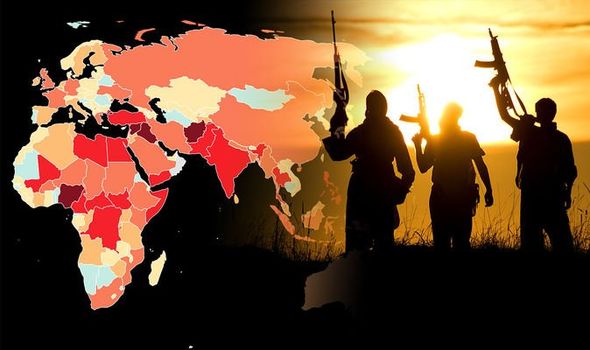Comprehensive Convention on International Terrorism
2021 MAY 5
Mains >
Security > Development and Extremism > Terrorism

WHY IN NEWS:
- At the 75th session of the United Nations General Assembly (UNGA), India highlighted the importance and need for early finalization and conclusion of the Comprehensive Convention on International Terrorism (CCIT)
WHAT IS CCIT?
- The Comprehensive Convention on International Terrorism is a proposed treaty which intends to criminalize all forms of international terrorism and deny terrorists, their financiers and supporters’ access to funds, arms, and safe havens.
- It was proposed first by India in 1996.
- India has been pushing for the treaty consistently, particularly in the wake of the 2008 Mumbai attacks
- But as of 2021 consensus has not yet been reached for the adoption of the convention.
MAJOR OBJECTIVES:
- To have a universal definition of terrorism that all 193-members of the UN General Assembly will adopt into their own criminal law.
- To ban all terror groups and shut down terror camps.
- To prosecute all terrorists under special laws.
- To make cross-border terrorism an extraditable offence worldwide.
BENEFITS OF ADOPTION OF CCIT:
- Facilitate arriving at a universally accepted definition of terrorism:
- The convention aims to in-corporates a single, all-encompassing, legally binding, criminal law definition of terrorism.
- Clarity of definition of terrorism will help in delinking terror and religion.
- Ensure criminalization of all forms of terrorism:
- It will ensure criminalization of all forms of international terrorism, without differentiating between good or bad terrorists.
- Curb and criminalize terror financing
- It will deny terrorists, their financiers, and supporters access to funds, arms, and safe havens.
- Impose legal obligation on the signatory countries
- To control terrorist activities within their countries >> Hence, controlling state sponsored terrorism.
- Ensure prosecution:
- Ensure prosecution of all terrorists under special, internationally accepted laws.
- Helps in tackling cross-bordering terrorism:
- Serve to make cross-border terrorism an extraditable offence worldwide, making it difficult for terrorists for sheltering in countries.
- Curb front organizations which support terror groups:
- Ng Enable identification and isolation of those who support and sponsor terrorism, and furthering support to those in fight against terrorism.
- Facilitate international cooperation:
- Facilitate international cooperation in intelligence gathering and sharing.
CHALLENGES:
- Ratification of the CCIT remains deadlocked, mainly due to opposition from three main blocs:
- US and NATO members:
- Concerns have been raised over the definition of terrorism.
- The U.S. has been worried about the application of the CCIT to its own military forces especially with regard to interventions in Afghanistan and Iraq.
- Organization of Islamic Cooperation (OIC) countries:
- The OIC countries feel that the convention will be used to target Pakistan and will restrict the rights of self-determination groups in Palestine, Kashmir and elsewhere in the world.
- South American countries:
- Latin American countries have raised their concern over international humanitarian laws as they fear that it will affect the implementation of their domestic laws.
WAY FORWARD:
- To accommodate concerns of the countries, following changes can be incorporated:
- Draft may clarify that "the activities of armed forces during an armed conflict" will not be governed by the present convention.
- Exclusion of national liberation movements, especially in the context of Israel-Palestinian conflict.
- Creation of informal groupings for issuing sanctions:
- Efforts should be made for creation of informal groupings of likeminded countries for issuing sanctions against terror financing nations.
PRACTICE QUESTION:
Q. ‘Absence of a global convention against terrorism had been largely exploited by the terror-exporting states’. In this context analyze the need for adoption of the Comprehensive Convention on International Terrorism?
